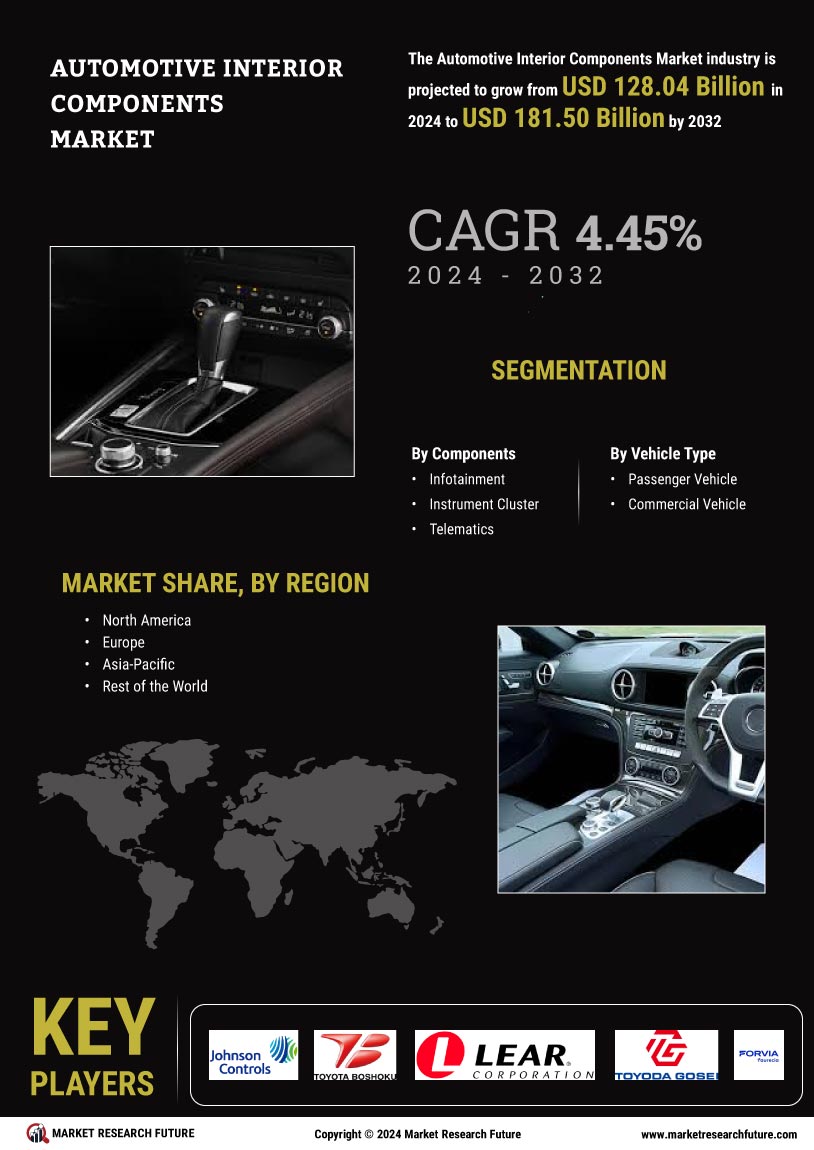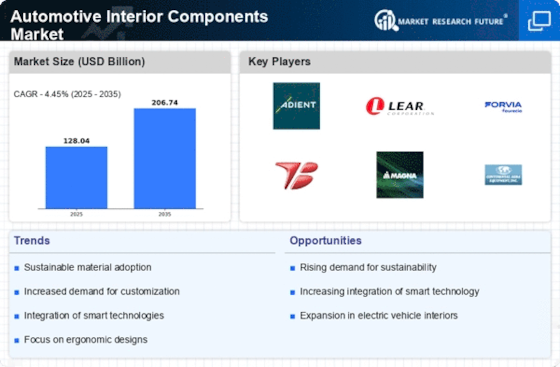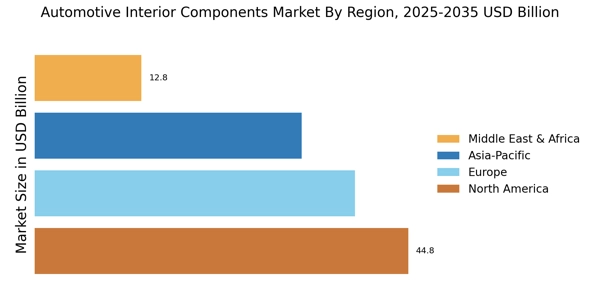Increased Focus on Safety Features
Safety remains a paramount concern in the Automotive Interior Components Market, driving the demand for advanced safety features in vehicle interiors. Manufacturers are increasingly incorporating technologies such as airbags, advanced seatbelt systems, and collision avoidance systems into their designs. The market for safety-related interior components is projected to grow significantly, with estimates suggesting a compound annual growth rate of around 6% over the next few years. This focus on safety not only enhances consumer confidence but also aligns with regulatory requirements that mandate higher safety standards. As a result, the Automotive Interior Components Market is likely to witness a surge in the development and integration of innovative safety features, further propelling market growth.
Customization and Personalization Trends
Customization and personalization are emerging as key drivers in the Automotive Interior Components Market. Consumers increasingly seek unique interior designs that reflect their personal style and preferences. This trend is leading manufacturers to offer a wider range of customizable options, from upholstery materials to dashboard layouts. Data indicates that the market for personalized automotive interiors is projected to grow by approximately 8% over the next five years. As technology advances, manufacturers are leveraging digital platforms to facilitate customization, allowing consumers to design their interiors online. This focus on personalization not only enhances consumer satisfaction but also positions the Automotive Interior Components Market for sustained growth as it adapts to changing consumer demands.
Sustainability and Eco-Friendly Materials
The Automotive Interior Components Market is increasingly influenced by the demand for sustainability and eco-friendly materials. Consumers are becoming more environmentally conscious, prompting manufacturers to explore sustainable alternatives to traditional materials. This shift is evident in the growing use of recycled plastics, natural fibers, and bio-based materials in vehicle interiors. According to industry reports, the market for sustainable automotive materials is expected to grow at a rate of approximately 7% annually. As manufacturers strive to meet consumer expectations and regulatory pressures regarding sustainability, the Automotive Interior Components Market is likely to see a significant transformation, with a greater emphasis on eco-friendly practices and materials.
Rising Consumer Demand for Comfort and Luxury
The Automotive Interior Components Market is experiencing a notable shift towards enhanced comfort and luxury features in vehicles. Consumers increasingly prioritize interior aesthetics and comfort, leading to a surge in demand for high-quality materials and innovative designs. This trend is reflected in the growing market for premium seating, advanced climate control systems, and noise reduction technologies. According to recent data, the luxury vehicle segment is projected to grow at a compound annual growth rate of approximately 5.5% over the next five years. As manufacturers respond to this consumer preference, the Automotive Interior Components Market is likely to see a corresponding increase in the production of premium interior components, thereby driving overall market growth.
Technological Advancements in Manufacturing Processes
Technological advancements are significantly influencing the Automotive Interior Components Market. Innovations in manufacturing processes, such as 3D printing and automation, are enhancing production efficiency and reducing costs. These technologies enable manufacturers to create complex designs and customize components with greater precision. For instance, the adoption of 3D printing is expected to reduce lead times and allow for rapid prototyping, which is crucial in meeting the evolving demands of consumers. Furthermore, the integration of smart technologies into interior components, such as touchscreens and voice-activated controls, is becoming increasingly prevalent. This trend is anticipated to propel the Automotive Interior Components Market forward, as manufacturers invest in advanced technologies to stay competitive.


















